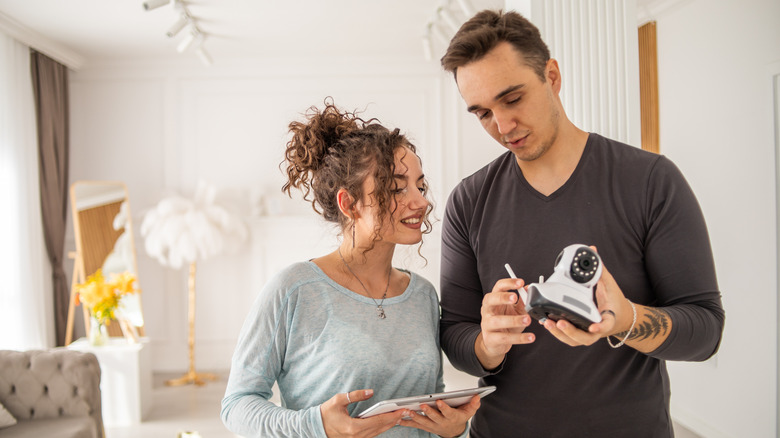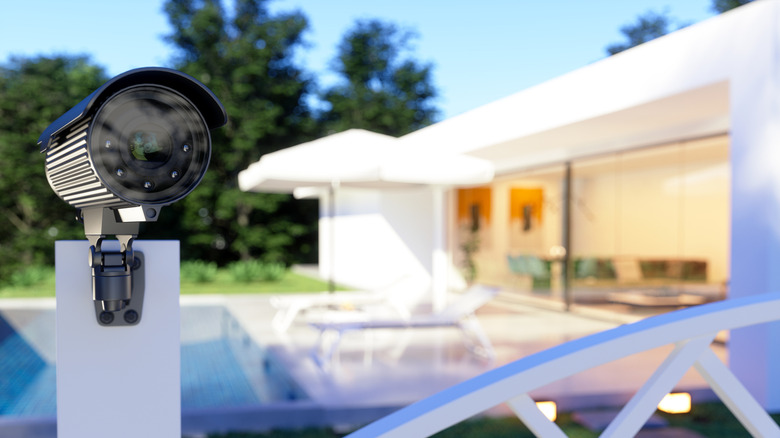The One Place You Shouldn't Install Security Cameras On Your Property And Why
For those looking to increase their home's security, adding cameras to their property seems like a no-brainer. With a wide range of items available across price points, security cameras have become an increasingly accessible option for many. But if you decide to install a security camera, picking the correct placement is paramount. To avoid accidentally damaging your machine, you shouldn't place it near vents and heaters.
Installing your security cameras in areas with obstructions like trees seems like an obvious no-no. However, you have to consider obstructions given off from vents and exhaust that may not matter to the naked eye, but make all the difference to your camera. If you wear glasses, you know how quickly steam, fog, and smoke can block your lenses. The same goes for your camera, too. Exhaust from vents can not only dirty the lens, but they can also damage your camera's electronics.
Alongside any exhaust or particles within it, higher temperatures from these open heat sources can also damage your camera. Plus, if you decide to use adhesives to mount your camera, the excessive heat can melt them away, which will likely result in your camera getting damaged from a fall. For outdoor installation, you should look out for external sources like your dryer exhaust or gas heating vents. There are also areas inside that can cause similar damages from excessive heat, like space heaters and fire pits.
More tips for successfully placing your security camera
When it comes to where to place your home security camera for maximum results, there are a few things to consider, like visibly covering entry points. You may be tempted to hide your camera. However, simply having a camera visible may be enough to deter some people from any wrong-doing. Also, keep in mind that entry points into your home extend beyond your front or back doors. You should also consider other easily accessible points like first floor windows, garage doors, and more. In addition to installing cameras, you can follow these inexpensive tips to protect your home from intruders, like upgrading your door hinges with tamperproof screws and displaying security signs as a deterrent (even if you don't actually have any cameras).
Before putting up any cameras, though, you need to be aware of laws around their use. The most important ones to consider are those around expectations of privacy, and, if your camera includes audio, whether you live in a one- or two-party consent state. Generally, it's legal to record video in public areas, like the sidewalk and within your property. However, you cannot install cameras in areas with a reasonable expectation of privacy, like bedrooms and bathrooms. Because laws can vary between states and counties, be sure to research your individual location for any specifics. Once you've brushed up on them, you can narrow down your search by checking out some of the top rated home security cameras.

